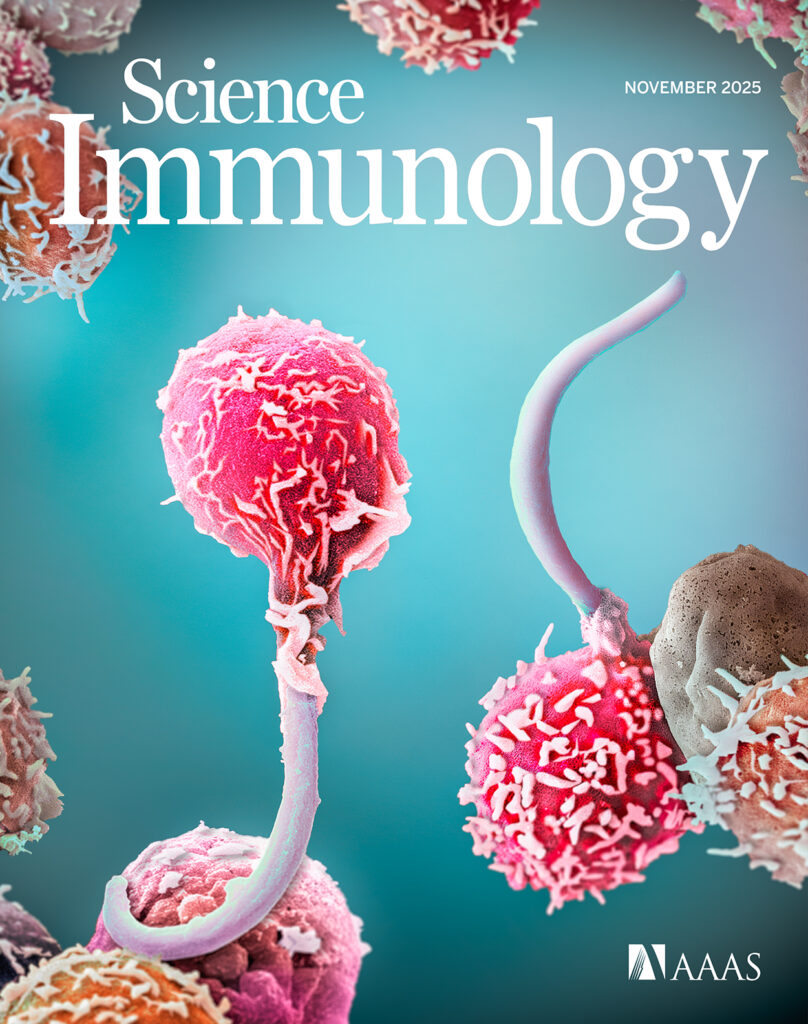A Science journal has issued an expression of concern over questions about the data in a paper reporting the discovery of an antibody that neutralized all COVID-19 variants in mice.
The article appeared in Science Immunology in August 2022 and has been cited 36 times, according to Clarivate’s Web of Science. The study lists 30 coauthors from Boston Children’s Hospital and Duke University. An article by Boston Children’s published at the time said the findings could “contribute to new vaccine strategies.”
According to the expression of concern, published November 21, the authors informed the journal of “potential data reliability concerns” with two of the figures. The journal is in the process of determining an “appropriate course of action,” the notice continues.
The authors did not respond to our questions about the nature of the data concerns.
Matthew Wright, deputy press director at AAAS, which publishes the journal, told Retraction Watch one of the authors contacted Science Immunology on behalf of the team of five corresponding authors. The authors used the word “unreliable” to describe the data, Wright said.
“While we await the results of an ongoing institutional investigation, we are issuing an [editorial expression of concern] to alert readers of these issues,” Wright said.
Boston Children’s Hospital and Harvard Medical School sent us a joint statement:
Any concerns brought to our attention are reviewed thoroughly in accordance with institutional policies and all applicable regulations. Because this matter is under active scientific review by the authors and editorial review by the journal, we are not able to comment on specific data questions or the nature of any concerns beyond what is reflected in the journal’s notice.
Wright confirmed the expression of concern was a first for the journal, which has published about 1,300 articles since it began in 2016.
The research was conducted in the lab of geneticist Frederick Alt of Boston Children’s and Harvard. Other corresponding authors are Tom Kirchhausen and Bing Chen, who share Alt’s affiliations, and Barton Haynes of Duke, whose lab helped vet the antibodies, according to the press release.
First author Sai Luo was a Ph.D. student in Alt’s lab at the time the research was conducted, according to Alt’s laboratory page, which also indicates Luo is currently an assistant professor at Tsinghua University in Beijing.
Alt has one retraction, for a 2012 study in Nature whose results could not be reproduced. Alt was one of 18 authors on that work. Sixteen papers coauthored by Alt have been flagged on PubPeer, many for image issues.
Like Retraction Watch? You can make a tax-deductible contribution to support our work, follow us on X or Bluesky, like us on Facebook, follow us on LinkedIn, add us to your RSS reader, or subscribe to our daily digest. If you find a retraction that’s not in our database, you can let us know here. For comments or feedback, email us at [email protected].

“Luo is currently an assistant professor at Tsinghua University in Beijing.”
Harvard might be a U.S. secret weapon when in come to the People’s Republic of China, Harvard itself might not even know that.
‘Alt has one retraction, for a 2012 study in Nature whose results could not be reproduced.’
If this was the reason why the paper was retracted “could not be reproduced’ much of modern science would be in trouble